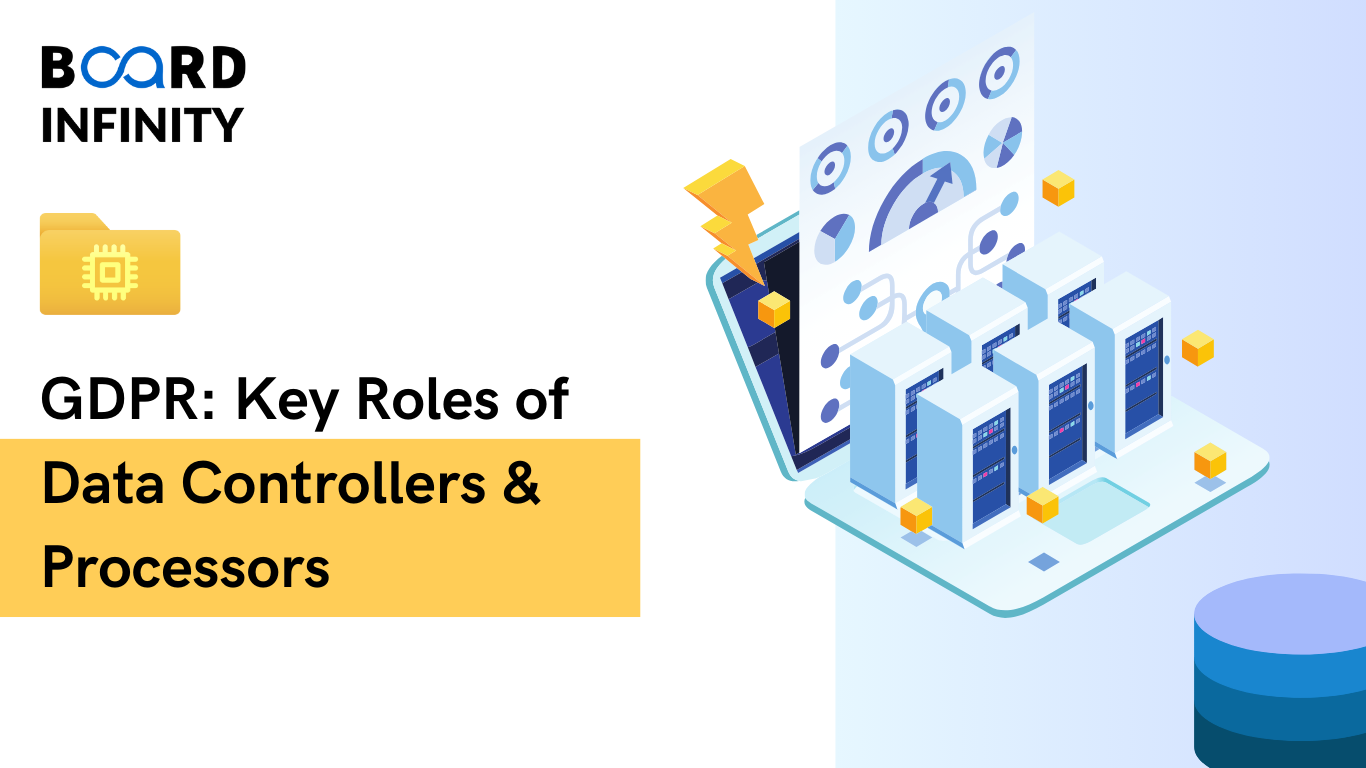
The General Data Protection Regulation (GDPR) defines two key roles responsible for managing personal data: the data controller and the data processor. Understanding the differences between these roles is crucial for any business that handles personal information.
What Is a Data Controller?
A data controller determines the purposes and means of processing personal data. They are responsible for ensuring compliance with GDPR and relevant legislation. Examples include companies, governmental bodies, or individuals like sole traders or professionals. Controllers must:
- Provide clear privacy notices.
- Ensure data accuracy and purposeful use.
- Assess and mitigate data processing risks.
- Implement a data protection policy.
- Work only with compliant processors.
What Is a Data Processor?
A data processor processes personal data on behalf of the controller, following the controller's instructions. They could be internal employees or external service providers. Processors must:
- Follow the controller's specified purposes and methods.
- Protect data as per GDPR requirements.
- Process data only for the controller's purposes.
- Ensure they have up-to-date security measures in place.
Main Responsibilities at a Glance
Here's a quick comparison between the responsibilities of data controllers and data processors:
Here's a summarized comparison based on the information gathered:
| Aspect | Data Controller | Data Processor |
|---|---|---|
| Definition | Determines the purposes and means of processing personal data. | Processes personal data on behalf of the controller. |
| Legal Compliance | Must ensure full compliance with GDPR privacy rules. | Must comply with GDPR as per controller's instructions and obligations. |
| Decision-Making | Makes decisions about data processing activities. | Follows instructions from the controller without making decisions on the data processing activities. |
| Data Security | Implements measures to secure personal data. | Ensures the security of the data during processing. |
| Record Keeping | Maintains records of processing activities, including data categories and processing purposes. | Keeps records of processing activities carried out on behalf of the controller. |
| Data Breach Reporting | Must report data breaches to the supervisory authority within 72 hours. | Reports data breaches to controllers without undue delay. |
| Handling Data Subject Rights | Handles requests from data subjects regarding access, rectification, erasure, and portability of their data. | Assists the controller in fulfilling data subject requests. |
| Data Protection Measures | Must perform Data Protection Impact Assessments for high-risk processing. Appoints a Data Protection Officer if required. | Implements appropriate security measures and follows the controller’s data protection policies. |
| Contracts and Liabilities | Enters into binding contracts with processors and is liable for GDPR compliance. | Enters into binding contracts with the controller and sub-processors, liable for their compliance. |
| Supervisory Authority | Cooperates with Member State authorities. | Cooperates with Member State authorities as directed by the controller. |
The Distinction Between Controllers and Processors
Controllers are akin to generals in command, making strategic decisions about data handling. Processors, on the other hand, are like soldiers executing these orders. The controller sets the objectives; the processor carries them out, ensuring strict adherence to the controller's guidance.
For example, if Sterling Company uses Google Analytics to understand website traffic, Sterling is the controller, making decisions on data usage, while Google Analytics is the processor, executing data analysis as directed.
Why It Matters
With GDPR, both controllers and processors face significant obligations and potential penalties for non-compliance. It's crucial for businesses to clearly define these roles and ensure that all data handling practices meet the stringent requirements of GDPR.
Remember, in the digital age, personal information is a valuable currency. Protecting this data isn't just a legal requirement—it's a trust pact with your customers and employees.
